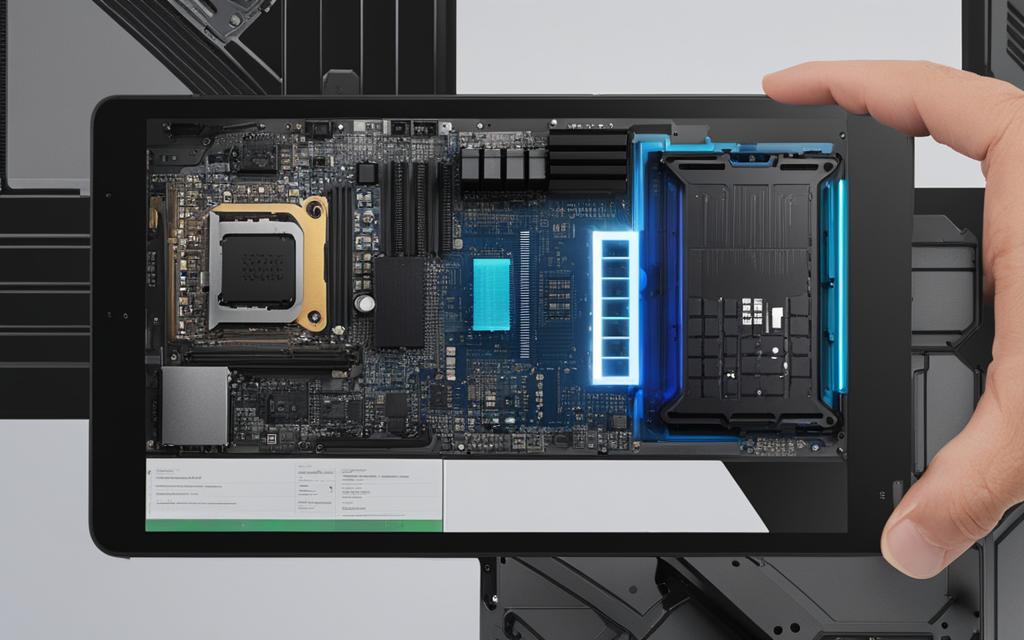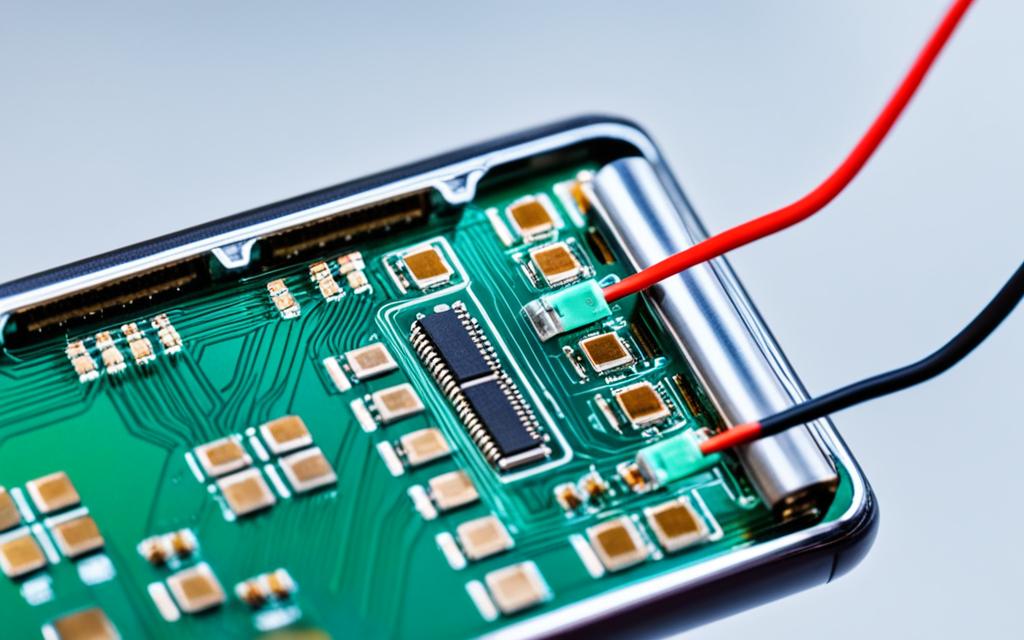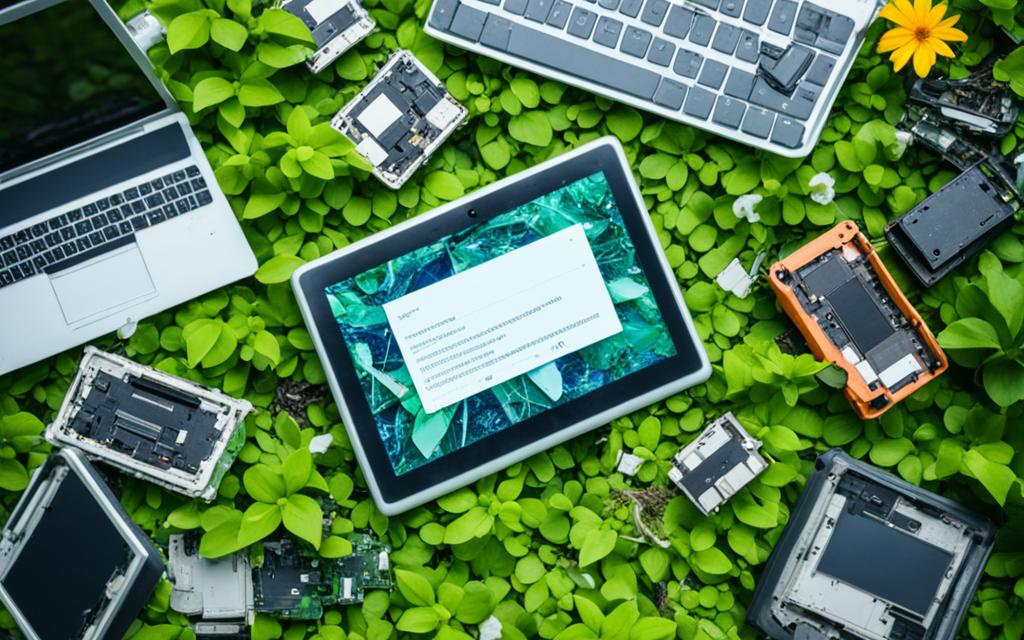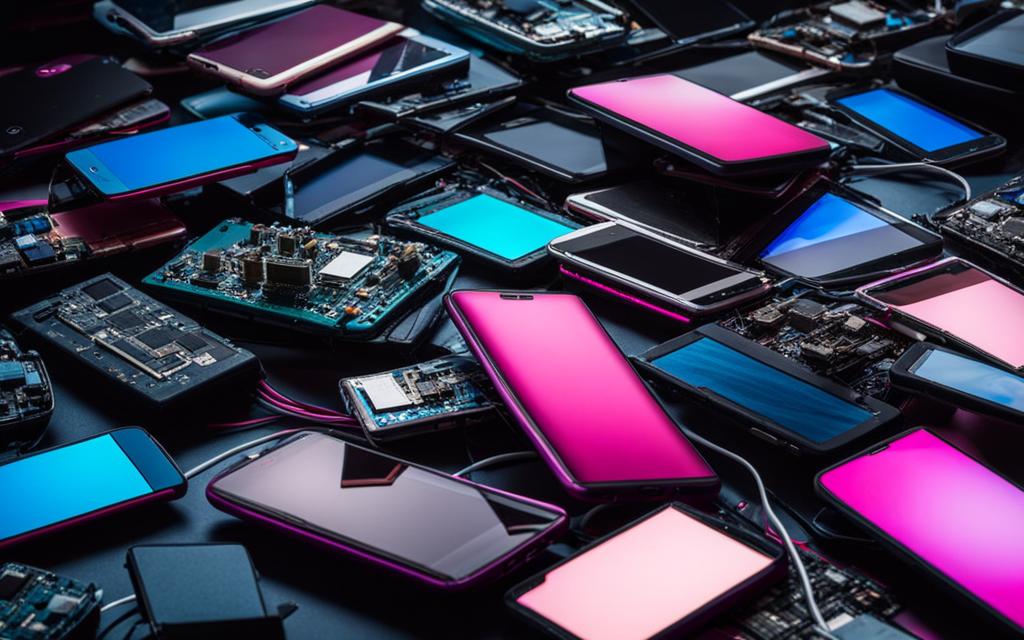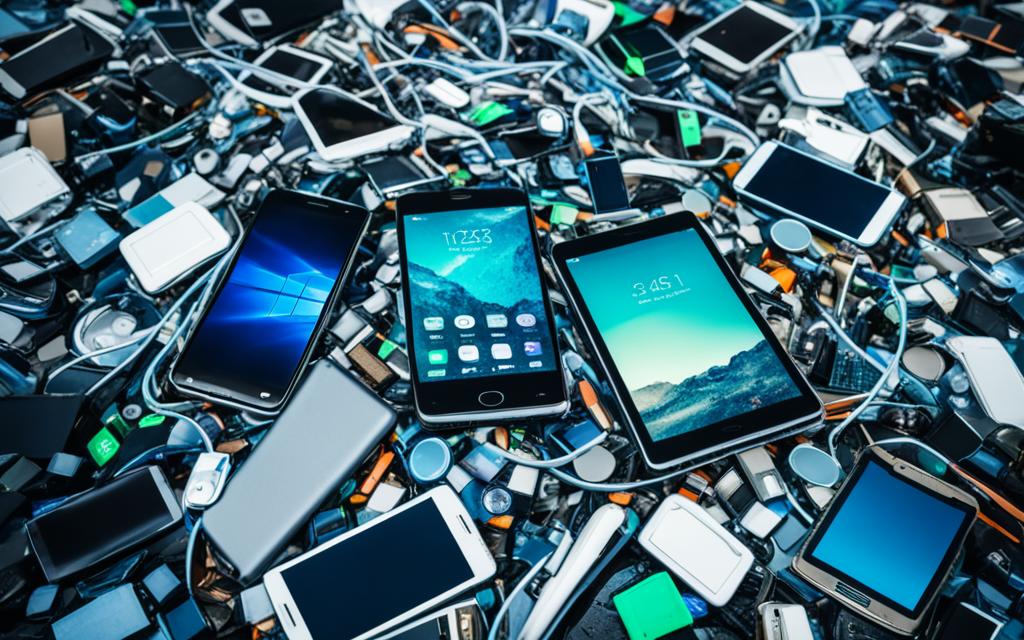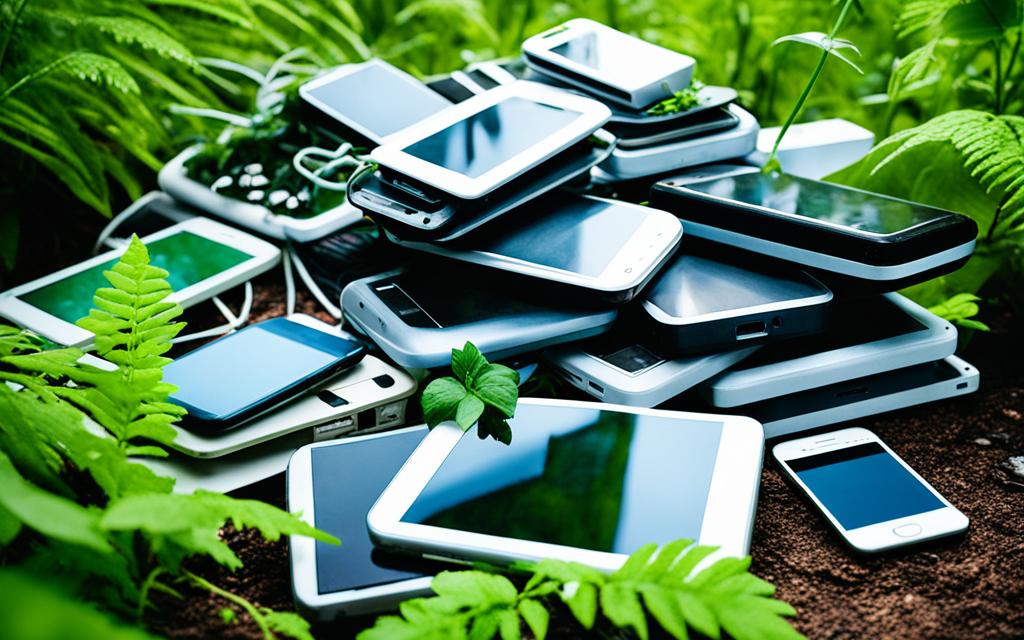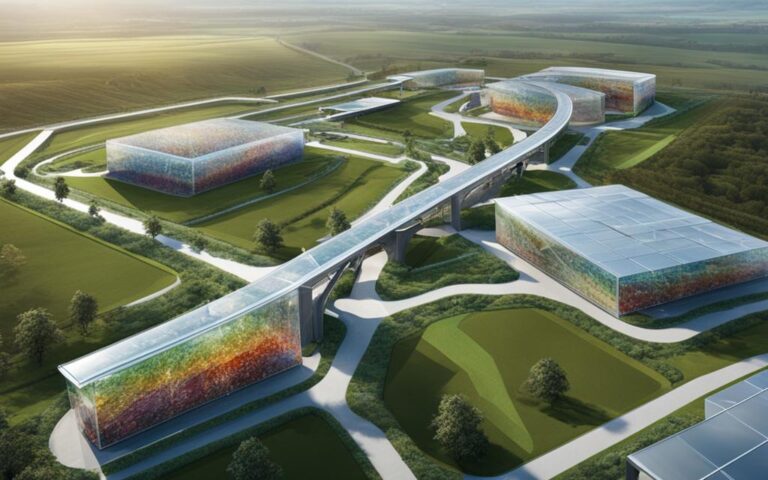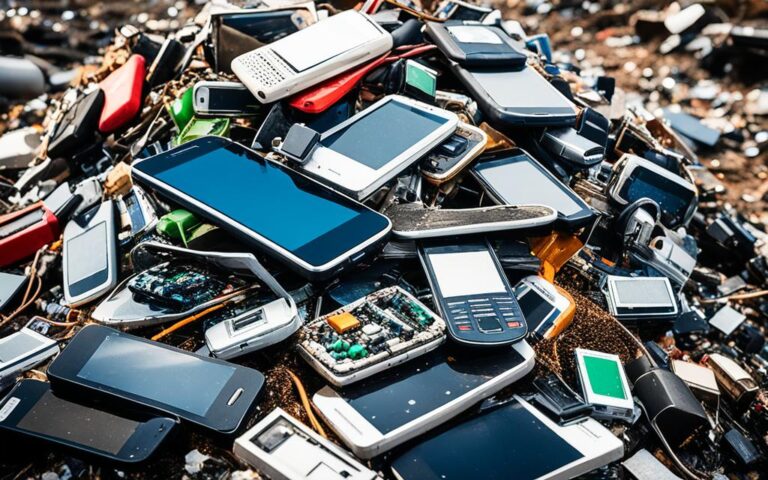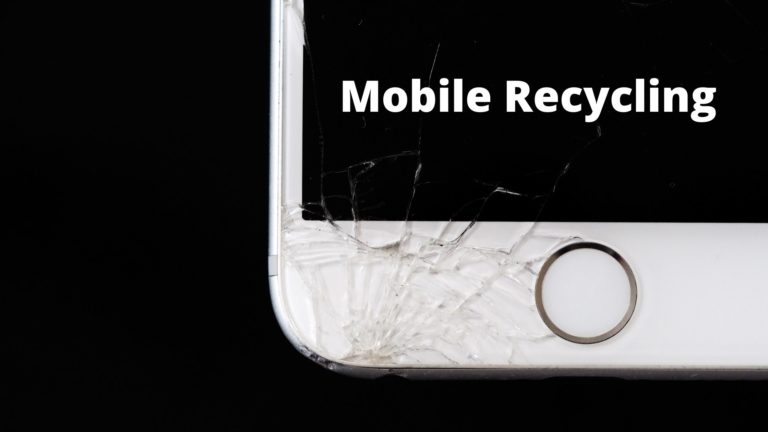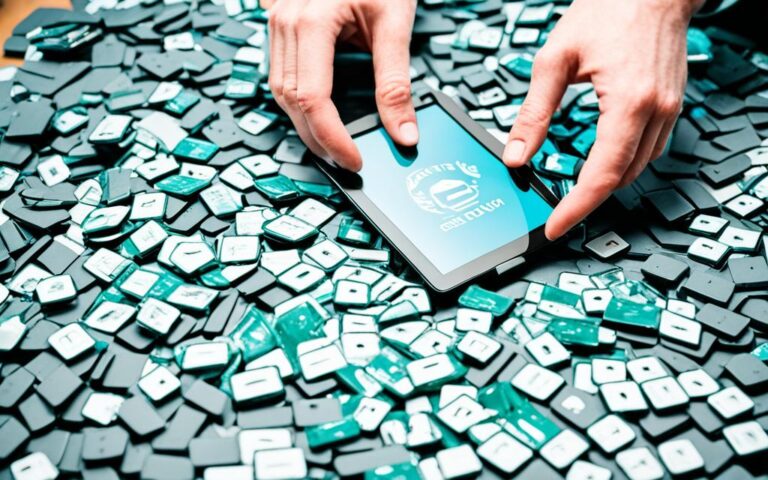Understanding the Components of Your Tablet
Tablets have become an integral part of our daily lives, serving various purposes like work, entertainment, and communication. To fully understand the functionality and capabilities of tablets, it is essential to familiarize yourself with their core components and features. By knowing what is inside your tablet, you can make informed decisions when purchasing and using these versatile devices.
When it comes to tablets, knowing the essential components and features is crucial. Let’s explore the key elements that make up a tablet and contribute to its performance and usability.
Core Components of a Tablet
As tablets continue to evolve, understanding their core components is essential for making informed purchasing decisions. Each component plays a crucial role in determining the tablet’s performance and functionality. Let’s explore the key components that make tablets such versatile devices.
Tablet Processor
The tablet processor, often referred to as the “brain” of the device, influences its speed and processing power. A powerful processor ensures smooth multitasking, faster app launches, and seamless browsing experiences.
RAM and Storage
RAM (Random Access Memory) and storage are pivotal in determining a tablet’s ability to handle multiple tasks and store data. Ample RAM enhances overall performance, while sufficient storage allows for the seamless installation of apps, storage of media files, and more.
Tablet Display
The tablet display is a vital component that influences the visual experience. High-resolution screens with vibrant colors and wide viewing angles contribute to stunning visuals, making multimedia consumption and productivity tasks enjoyable.
Tablet Operating System
The tablet operating system dictates the user interface and compatibility with various apps and software. Popular operating systems like iOS and Android offer extensive app ecosystems, ensuring access to a wide range of applications.
Tablet Cameras
Tablet cameras have become increasingly important for capturing memories, attending virtual meetings, and engaging in video calls. Higher megapixels and advanced camera features allow for better quality photos and videos.
Tablet Connectivity Options
Modern tablets offer various connectivity options. These include Wi-Fi, Bluetooth, and cellular connectivity, enabling seamless internet access, device pairing, and on-the-go productivity.
Tablet Battery Life
Battery life is a critical consideration for any tablet. Longer battery life ensures uninterrupted usage and portability without the need for frequent recharging.
Understanding these core components is vital in selecting a tablet that meets your specific needs and preferences. Whether you prioritize processing power, storage capacity, or display quality, considering these components will help you make an informed decision.
| Component | Importance |
|---|---|
| Processor | Key determinant of speed and multitasking capabilities |
| RAM and Storage | Enhance performance and allow for seamless app usage and data storage |
| Display | Influences visual experience and multimedia consumption |
| Operating System | Affects user interface and compatibility with apps and software |
| Cameras | Enable capturing photos and videos, attending virtual meetings, and video calls |
| Connectivity Options | Facilitate internet access, device pairing, and on-the-go productivity |
| Battery Life | Ensures uninterrupted usage and portability |
By considering these components and their individual importance, you can choose the right tablet that aligns with your specific requirements, enhancing your digital experience and productivity.
Customizing Your Tablet Experience
To enhance the functionality and personalization of your tablet, there are additional features and options available:
Tablet Apps and Software
Tablet apps and software can significantly expand the capabilities of your device. Whether you’re looking to stay productive with office suites, explore new entertainment options with streaming services and games, or manage your daily tasks with productivity tools and organization apps, there is a vast array of apps and software available for tablet users. From popular apps like Microsoft Office, Netflix, and Spotify to specialized apps tailored to specific interests and needs, there’s something for everyone.
Tablet Accessories
To further customize your tablet experience, consider investing in a range of tablet accessories. These accessories can enhance your device’s functionality and usability, allowing you to make the most of your tablet in different scenarios. Some popular tablet accessories include:
| Accessory | Description |
|---|---|
| Tablet Keyboard | Attachable keyboards that transform your tablet into a laptop-like device, ideal for heavy typing or productivity tasks. |
| Tablet Stylus | A stylus pen that provides precise control and allows you to take notes, draw, or navigate your tablet with ease. |
| Tablet Stand | A stand or dock that holds your tablet at a comfortable viewing angle, perfect for watching movies, video calls, or following recipes in the kitchen. |
| Tablet Case or Cover | Protective cases or covers that shield your tablet from scratches, bumps, and everyday wear and tear. |
| Tablet External Storage | Expand your tablet’s storage capacity with external hard drives or memory cards to store more photos, videos, and documents. |
By customizing your tablet experience with the right apps and accessories, you can tailor your device to suit your specific needs and preferences. Whether you’re a student, professional, or simply enjoy using your tablet for leisure, exploring the world of tablet apps and accessories opens up new possibilities and enhances your overall experience.
Challenges and Considerations in Choosing a Tablet
When it comes to buying a tablet, there are several important factors that need to be considered. These factors will ensure that the tablet you choose meets your specific needs and provides an optimal user experience.
Tablet Screen Size
The screen size of a tablet plays a crucial role in determining its usability and portability. Smaller screens are more convenient for on-the-go use, while larger screens offer a better viewing experience for multimedia content and productivity tasks.
Tablet Processing Power
The processing power of a tablet affects its speed and performance. It determines how quickly apps load, how smoothly games run, and how efficiently multitasking can be handled. Processors with higher clock speeds and multiple cores offer better performance.
Tablet Compatibility
Compatibility is an essential consideration when choosing a tablet. Ensure that the tablet is compatible with the operating system you prefer, as well as with the apps and software you rely on for work or entertainment. Check for compatibility with peripherals such as keyboards, headphones, or styluses if you plan to use them.
Tablet Considerations
There are additional considerations that can greatly impact your tablet choice. These include:
- Storage capacity: Determine how much built-in storage the tablet offers and whether it can be expanded with external memory cards.
- Battery life: Check the battery life specifications to ensure it meets your usage requirements throughout the day.
- Camera quality: If you plan on using your tablet for photography or video calls, consider the quality and features of the front and rear-facing cameras.
- Connectivity options: Evaluate the tablet’s connectivity options such as Wi-Fi, Bluetooth, and cellular capabilities to ensure they align with your needs.
Considering these factors will help you make an informed decision when buying a tablet, ensuring that it fulfills your specific requirements and enhances your digital experience. By carefully evaluating the tablet screen size, processing power, compatibility, and other considerations, you can find the perfect tablet that meets your needs and provides a seamless user experience.
| Factors to Consider | Importance |
|---|---|
| Tablet Screen Size | High |
| Tablet Processing Power | High |
| Tablet Compatibility | High |
| Storage Capacity | Medium |
| Battery Life | Medium |
| Camera Quality | Medium |
| Connectivity Options | Medium |
Conclusion
Understanding the components of tablets is key to unlocking their full potential and finding the perfect device to suit your individual needs. Tablets offer a plethora of possibilities in a sleek and portable package, making them an essential tool in our digital lives.
By considering important factors such as processing power, screen size, and compatibility, you can confidently make an informed decision when purchasing a tablet. These considerations ensure that you choose a tablet that seamlessly integrates into your lifestyle, whether you need it for work, entertainment, or communication.
With a deep understanding of tablet components, you can appreciate the capabilities they bring to your digital experience. From the powerful processor that enables smooth multitasking to the high-resolution display that immerses you in vibrant visuals, each component plays a crucial role in enhancing your tablet experience.
So, whether you’re a professional seeking productivity on the go or a casual user looking for entertainment, understanding tablet components empowers you to choose the right tablet for your unique needs. Embrace the convenience and innovation that tablets offer and elevate your digital journey to new heights.
FAQ
What are the essential components and features of tablets?
The essential components of tablets include the processor, RAM and storage, display, operating system, cameras, connectivity options, and battery life. Additional features such as apps, software, and accessories allow for further customization.
What is a tablet processor?
The tablet processor is the central processing unit (CPU) that serves as the brain of the device. It determines the speed and performance of the tablet.
What is RAM and storage in a tablet?
RAM (Random Access Memory) is the temporary storage where the tablet stores data that it needs to access quickly. Storage refers to the permanent memory where you can store your files, apps, and other data on the tablet.
What is the importance of the tablet display?
The tablet display is where you interact with the device. It affects the visual experience, including screen size, resolution, and touchscreen functionality.
Which operating systems are used in tablets?
Tablets can have various operating systems, including iOS (Apple), Android (Google), and Windows (Microsoft). The operating system determines the interface and available apps.
What role do tablet cameras play?
Tablet cameras allow you to capture photos and videos. They can vary in quality and resolution, affecting the overall camera capabilities of the device.
What connectivity options are available in tablets?
Tablets can have various connectivity options such as Wi-Fi, Bluetooth, cellular data, and USB ports. These options determine how you can connect to the internet and other devices.
How long does the tablet battery last?
The battery life of a tablet depends on factors such as usage, screen brightness, and the tablet’s specifications. It is important to consider battery life when choosing a tablet, especially if you require longer usage without charging.
What are tablet apps and software?
Tablet apps and software refer to the applications and programs that you can download and install on your tablet to enhance its functionality and provide additional features.
Are there any accessories available for tablets?
Yes, there are various accessories available for tablets, such as cases, keyboards, stylus pens, and external storage options. These accessories can enhance the usability and convenience of your tablet.
What factors should I consider when buying a tablet?
When buying a tablet, consider factors such as screen size, processing power, compatibility with your other devices, and your specific needs and preferences. These factors will help you choose a tablet that suits your requirements.
How does tablet screen size impact usability?
Tablet screen size affects the visual experience and portability of the device. Smaller screens are more compact and portable, while larger screens offer more comfortable viewing and multitasking capabilities.
Why is tablet processing power important?
The processing power of a tablet affects its performance. Higher processing power allows for faster app loading, smoother multitasking, and better overall responsiveness.
What does tablet compatibility refer to?
Tablet compatibility refers to how well the tablet works with your other devices and software. Consider factors such as compatibility with your operating system, file formats, and connectivity options.
Are there any other considerations when choosing a tablet?
Yes, consider factors such as budget, brand reputation, customer reviews, and warranty when choosing a tablet. These can help ensure long-term satisfaction with your device.

